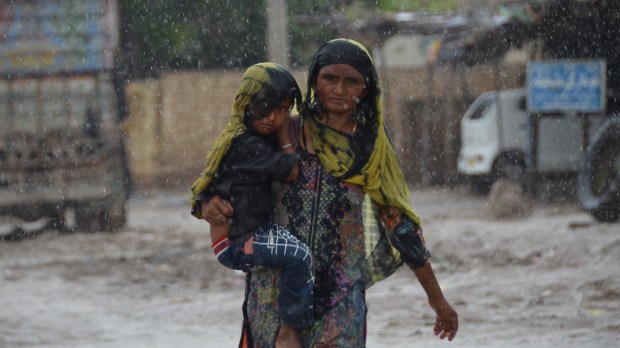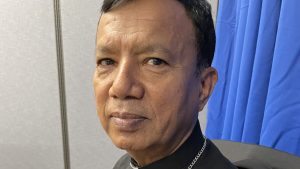At least 1,208 people, including 416 children, have died since June as a result of cataclysmic flooding in Pakistan. Now, even as waters recede in much of the country, the threat of waterborne disease and hunger threatens even more lives.
Roads, crops, homes and bridges have been damaged or destroyed in many places, and many people who rely on raising livestock for their livelihood have seen their animals swept away.
The unusual amount of monsoon season rain, which government officials attribute to climate change, has been accompanied by the melting of glaciers. Pakistan contains more glacial ice than any other country on earth outside the polar regions
Covering a third of the country and affecting some 33 million people, the flooding is reminiscent of – but far worse than – the so-called “Superflood of 2010,” which affected some 20 million people.
“More than a million homes, 2 million acres of crops and some 3,000 miles of roads have been damaged. Half a million people are now in displacement camps and many others are without shelter at all, scrambling just to get to higher ground,” National Public Radio reported.
“It’s devastation everywhere. Most of these areas were affected in the 2010 and 2011 floods,” Gul Wali Khan, emergency relief coordinator for Catholic Relief Services in Pakistan, said in an interview. “So it’s a double impact on these people.”
“This is the worst flooding in the 74-year history of Pakistan. Many people have become homeless,” added Fr. James Channan, O.P., director of the Peace Center, an ecumenical effort in Lahore.
The Archbishop Emeritus of Karachi, Cardinal Joseph Coutts, said that it has been “raining regularly almost every day for two months without interruption.” The rain has reached the mountains in the north, he explained, and the water has flooded all the way down to the sea, flowing over some 1,700 kilometers with incredible force and causing “unprecedented destruction.”
Speaking to Vatican News while in Rome for Pope Francis’s meeting with the world’s cardinals on the reform of the Curia, he said that the government, the army and Caritas Pakistan immediately sprang into action, but the emergency is enormous and “material aid such as clothes and food that does not spoil is urgently needed, for example, grain and oil.”
He added that poor people always bear the brunt of the disaster. “They have houses with weak structures, and the mud and the water destroy everything and are very dangerous,” Cardinal Coutts said.
Aid agencies struggle to get in
Khan said that while CRS is providing food, drinking water and medicine, a big challenge is getting access to areas where roads have been washed out.
“There were certain villages which were surrounded by water; their houses were collapsed. So they were sitting on the roadside in an elevated area, to save their family. And we wanted to go to a couple of villages, which we did not, because of access issues. The link road was being cut up by the flood in multiple locations.”
In many cases, families had very little time to react to oncoming flood waters. “They took only some basic items with them,” Khan said. “They weren’t even able to secure their livestock.”
“Water also washed away standing crops and planted seed. Farmers have nothing left with them,” he added. “Two million acres of crops and orchards have been affected – 300,000 acres in Balochistan and 1.5 million acres of crops are being badly affected in Sindh.”
Balochistan and Sindh are the two southern provinces of Pakistan.
In addition to providing food assistance, clean drinking water, and shelter materials, CRS will be distributing cash assistance so people will have the chance to buy materials in markets, Khan said.
Although the Peace Center is not a humanitarian relief agency, Fr. Channan said he is making efforts to provide emergency food packages to families affected by the flooding. He estimates that each package, designed to sustain a family of five for a month, will cost $53 and said those who would like to help can reach him by email, jchannan@gmail.com.
“There is now a high risk of water-borne, deadly diseases spreading rapidly — diarrhea, cholera, dengue, malaria,” UNICEF Pakistan Representative Abdullah Fadil told a Geneva press briefing. “There is therefore a risk of many more child deaths,” he said.
Weather officials predict more rains and flash flooding in the month of September, with southern regions bracing for a surge of water from the Indus river, Reuters reported.
Other ways to help:



